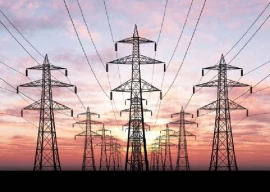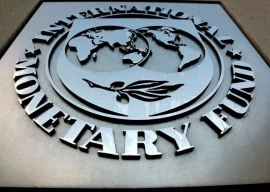
Robert Kaplan’s new book Monsoon suggests a newer dimension of the twenty-first century’s great game. He posits that anyone controlling the two choke points in the Indian Ocean, Hormuz and Malacca, dominates the Indian Ocean. Add to it the Red Sea and the Gulf of Aden and you have around three-quarters of world trade in your control. More important is oil and liquefied gas that runs the economies of China, India and the entire East and South East Asia. The trade plies only if the one controlling the sea lanes lets it ply. That explains the ongoing quest between China and America for dominating the seas; and that is why new blocs are forming — replacing the Cold War construct.
China operates under a different strategy. Never the one to flaunt hard power, it underplays its strength and uses soft power instead to extend its influence. What better way to expend a part of its almost $3 trillion worth of liquid reserves than to invest in countries that have either escaped American attention or where space exists. Never good at free handouts, the Chinese believe in economic investment where returns favour economic sustainability and prosperity. She remains, however, acutely conscious of the importance of Malacca, as indeed of the combined challenge that has been building up to dominate that portion of the waterways.
The Chinese, realistically, unable to withstand the combined challenge, in their plan B envisage land routes and pipelines from various ports around the Indian Ocean to transport commodities. Gwadar in Balochistan is one such port made with Chinese assistance with a potential to facilitate trade. Iran next door, too, can connect into this potential trade highway of commodities and goods. Quite clearly, China and all such nations that are linked through these means of trade retain mutual dependencies, binding them into a supportive relationship. This is where the rub for America lies.
Enter the current spate of geopolitics in the region. The US derides Burma for human rights excesses but allows a free hand to its strategic partner, India, to retain close links with the Yangon regime. India, itself a potential hegemonic state, validates this exception as her need. The US pushes Pakistan to resolve matters with India and to perceive her as a friendly neighbour rather than an enemy. America already owns Afghanistan and permits greater access to India for her proxy role against China — obviating her own longer-term presence. In India, too, a few voices question the strategy of not engaging with Pakistan since that has left an open space for China; there is also growing clamour for regaining India’s primacy over what was earlier British India.
A few things happen simultaneously: Following the Abbottabad operation, the Americans build on the incredulity of Osama’s presence in Pakistan without state support and then call into question the state’s capacity to implement parliament’s resolution against drone strikes. The attack on the PNS Mehran base further dents the military’s reputation and its credence in the eyes of its own people. Saleem Shahzad and Saba Dashtiari are murdered in quick succession; militating the gradually growing venom against the military, lowering its stock in the dumps.
The media and the educated elites grab the opportunity to seek redemption to a long-standing civil-military imbalance in Pakistan’s intellectual discourse and another divide entrenches itself into Pakistani society. Pakistan attempts balancing American intransigence through the China card but then both retrench to avoid raising hackles.
Pakistan remains on a slow boil: Balochistan is unsteady and badly governed — the military, unable to dust off past ghosts, can now only fight a rearguard battle; the media and the intellectual focus resides in cornering the military to give in to civilian supremacy; the discourse is stuck in a groove on the entitlement to formulate the foreign and security policies of the state. An embroiled Pakistan is consistently losing space to pursue traditional interests forced to fight on the inner front. A divided nation, Pakistan remains incapable of imaginative recourse out of its travails; this suits the American agenda well. Somewhere along the line, this nation of ours plays an unwitting accomplice. We are losing the woods as we count the trees.
Published in The Express Tribune, June 14th, 2011.
















































COMMENTS (33)
Comments are moderated and generally will be posted if they are on-topic and not abusive.
For more information, please see our Comments FAQ